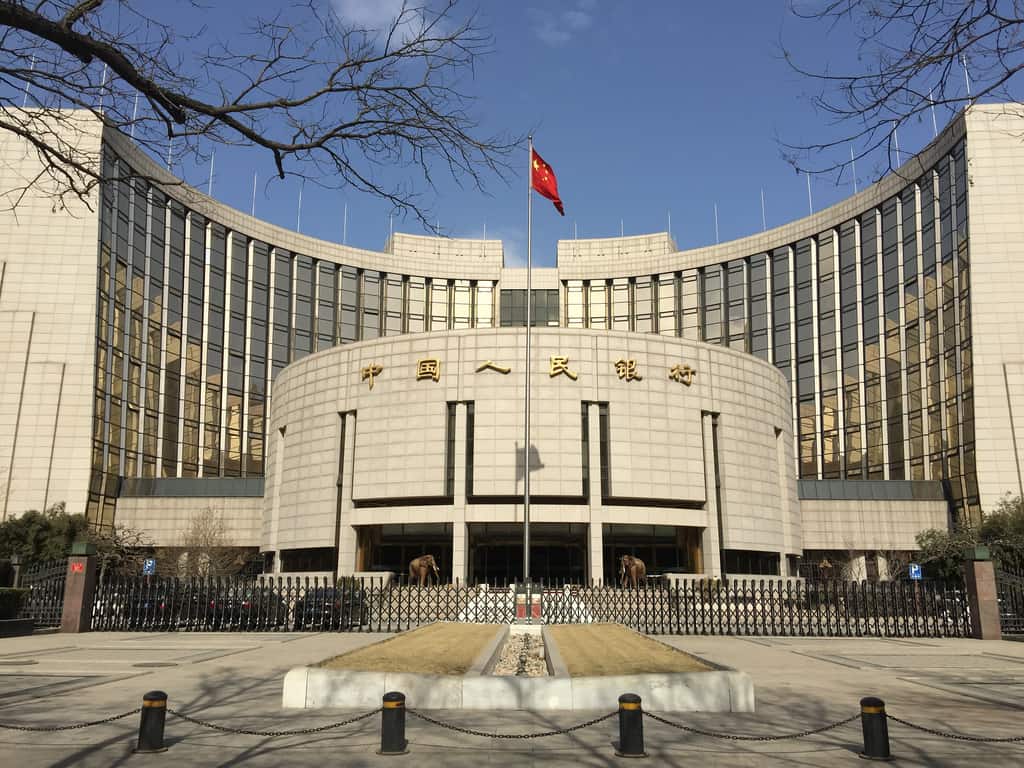A former vice-chair with the China Banking Regulatory Commission (CBRC) said that the rapid changes in China’s financial sector have made prevailing forms of regulation far less effective.
Zhou Yanli (周延礼), ex-CBRC vice-chair and current director of the PBC School of Finance at Tsinghua University (清华大学五道口金融学院), said that sector-based regulation has become ill-suited to the needs of China’s fast-changing financial environment – especially following the rampant growth of fintech and cross-sector operations.
Zhou made the remarks during a speech delivered at the 2018 China Banking and Insurance Sector International Summit (2018中国银行保险业国际高峰论坛) held by the Shijingshan people’s government in Beijing.
“The current financial market is seeing widespread and continual innovation in financial products….banking, insurance, securities and financial operations have started to see cross-market and cross-sector operation,” said Zhou.
“This has gradually created an operating situation in which financial institutions are comprehensive license holders or even cross-sector license holders, and the creation of a number of financial holding conglomerates…some real enterprises in reality hold multiple types of financial licenses to create a financial holding company framework.”
Zhou pointed in particular to the existence of multiple regulatory agencies to deal with different segments of the financial sector as one of the core problems for today’s regulatory efforts.
“Prior to 1997 financial regulation was comprehensively undertaken by the People’s Bank of China, which combined the roles of both central bank and regulator, and the drafting as well as execution of monetary policy and financial policy.
“This created confusion in terms of professional roles and authorities, with no form of accountability.
“In the second half of 1998 the China Securities Regulatory Commission and the China Insurance Regulatory Commission were established, and in 2002 the second National Financial Work Conference decided to establish a specialist regulatory agency for banks.
“In 2003 the China Banking Regulatory Commission was established, gradually forming a regulatory situation which was sector-based.”
Zhou notes, however, that “the widespread application of online finance and fintech, and the innovative development of cross-sector operations, have produced an integrated financial market situation…[this] requires that financial regulators evolve towards fully unified coverage.”
“Particularly in the internet era, financial regulation faces even more severe challenges. This is mainly embodied by regulatory arbitrage, and the existence of different regulatory standards and regulations”
Other problems with China’s financial regulatory system highlighted by Zhou include conflicting incentives for regulators, who are required to both expedite development of the financial sector as well as restrain it, and the continued existence of regulatory gaps and information asymmetries.
As a consequence Chinese regulators are unable to “fully track the sources of funds and their final destination, or identify or make decisions with regard to systemic risk.”
“Sector-based regulation and rules are unable to encompass highly leveraged financial activity, while at the same time they also lead to information gaps with regard to the direction and nature of funds.”
In order to deal with the challenges created by China’s fast-changing financial environment, Zhou called for heightened coordination between agencies.
“International financial institutions heavily stress regulatory coordination mechanisms, and regulatory coordination mechanisms have become the international trend,” said Zhou, who pointed in particular to the need to “strengthen regulation, centralise and unify coordination and cooperation, and pool regulatory strength to preserve financial stability.”
“Further strengthening the role of the central bank with regard to financial stability has already become one of the targets of monetary policy,” said Zhou.
“Monetary policy means upholding a stable currency, controlling prices, safeguarding employment growth and maintaining the balance of payments, but financial stability is also one of the goals of the central bank’s monetary policy.”
Beijing implemented a major overhaul of its financial regulatory framework in March, with the unification of the banking and insurance regulators into the China Banking and Insurance Regulatory Commission, and the expansion of the Chinese central bank’s authorities to include the drafting of regulation.


